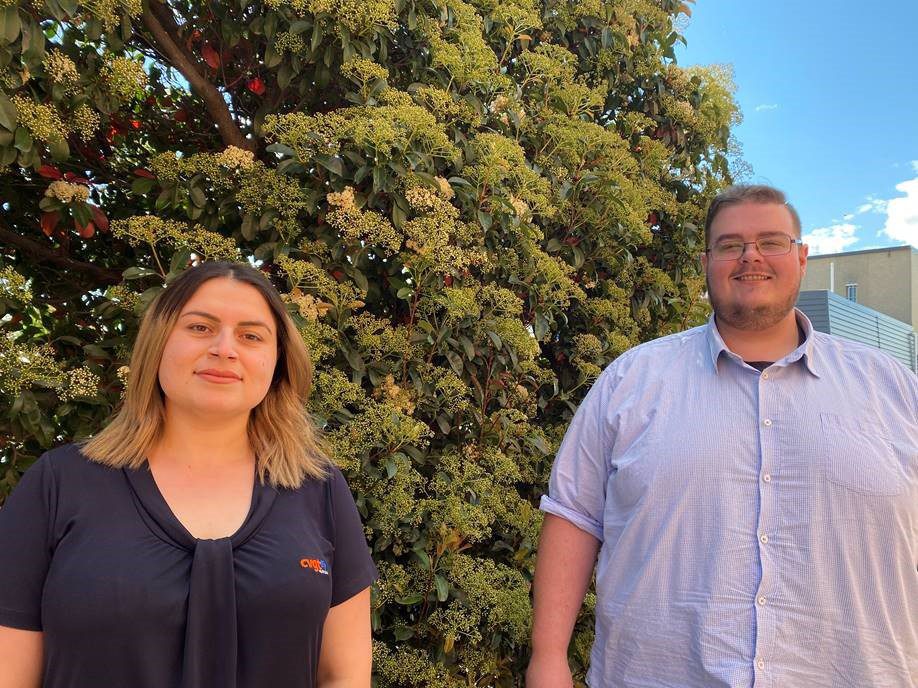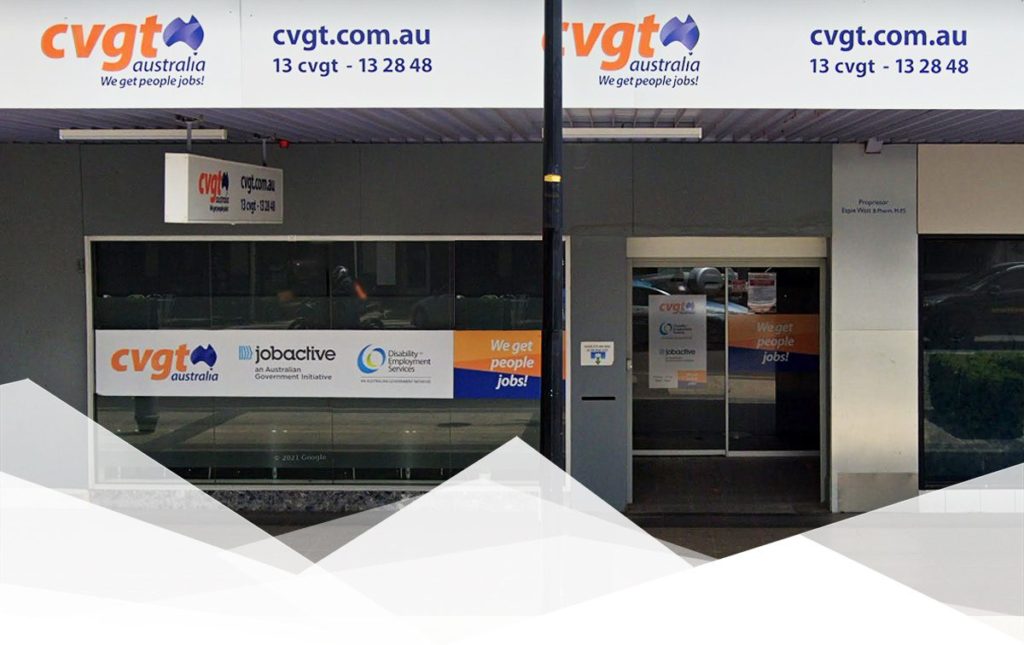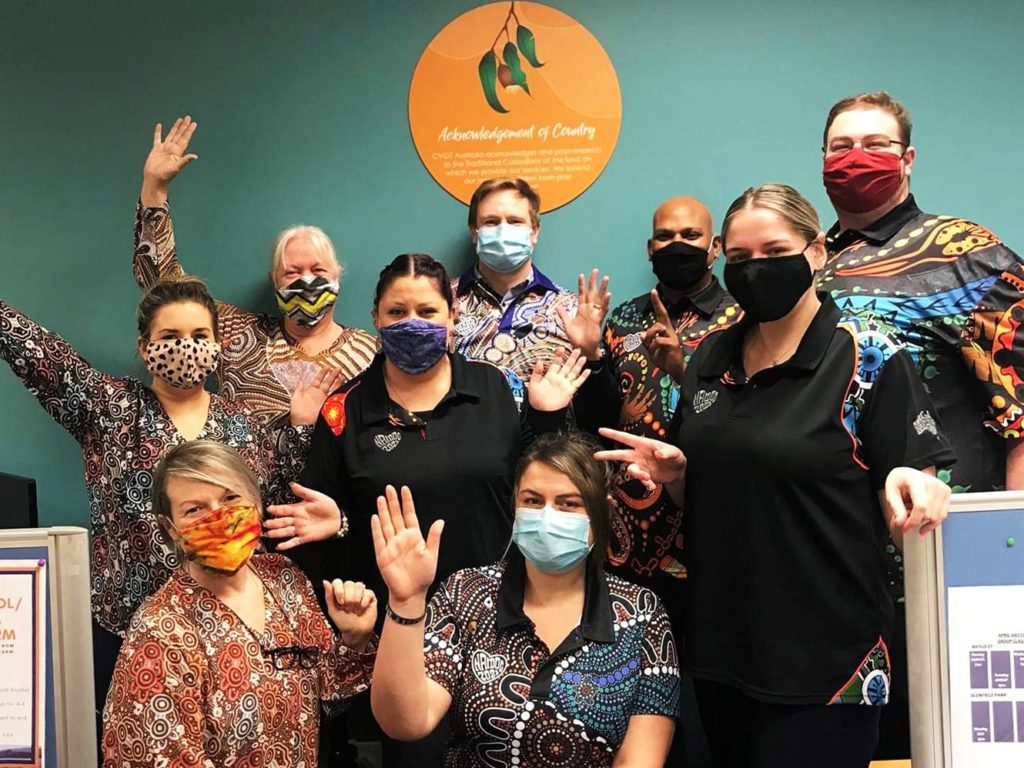
Earning the trust of Wagga Wagga’s Yazidi community
From refugee to reception, Eida is making a huge impression in the Wagga Wagga community.
CVGT Australia welcomed Eida into the position of Administration Trainee as the first trilingual voice behind the front desk of our Wagga Wagga office.
Eida – who speaks Arabic, Kurdish Kurmanji and English – was referred to the vacancy by CVGT staff after working with her as a jobactive participant.
Having fled Syria as a Yazidi refugee, Eida spent four years in Iraq prior to arriving in Australia in September 2017, when she was just 17 years old.
“I used to live with my family in an old house,” she says.
“We used to spend most of the time without electricity and I couldn’t complete my school. We worked on a farm to survive.”
After arriving in the regional Queensland city of Toowoomba, Eida spent the next three years practicing her English as she had only acquired basic skills at school in Syria.
In addition to going to the library every weekend and doing volunteer work to improve her English, Eida also completed AMEP at TAFE – a program many multicultural job seekers are familiar with.
Hardworking and motivated, Eida also start full-time study for a Certificate III in Education Support, as well as working as a teacher’s aide and interpreter for a local school.
When Eida met her husband and relocated to Wagga Wagga to be with his family in 2021, she found herself needing to look for work again.
“I chose CVGT because I heard that you help a lot of people get jobs,” she says.
Most seemed content enough to attend appointments, but were often reluctant to open up about their personal lives or experiences.
Nathaniel, Employment Skills Mentor, started work with CVGT in October 2019 and was quick to notice the disconnect between Wagga’s Yazidi community and the employment services.
CVGT has a growing reputation in the Kurdish and Arabic-speaking communities of Wagga Wagga, thanks in large part to the initiative of one dedicated staff member.
Nathaniel wondered what more could be done to engage this community.
One month into his new role, Nathaniel met Ismail – a participant in World of Work, who was fluent in English.

After engaging in the week-long activity, Nathaniel built enough rapport with Ismail to feel comfortable in asking about the Yazidi community, particularly why people were reluctant to ask questions or request help.
“He shared with me some of their history, cultural beliefs, how their community’s social structure works and more,” Nathaniel says.
“Most importantly, he shared with me the horrendous genocide that a lot of their people had faced in August 2014, when ISIS invaded Iraq.”
Ismail’s story opened Nathaniel’s eyes to the atrocities this community has endured. Along with the further hardship of crossing the border to seek asylum in Turkey, they then suffered appalling conditions in refugee camps.
“They had to live in these conditions for two-to-four years while waiting for the United Nations to process humanitarian visas,” Nathaniel says.
When they were finally arranged, many families were split up, being offered permanent residency in Germany or Australia.”
Learning of the resulting trauma and other physical and mental conditions the Yazidi community live with, Nathaniel was inspired to do more.
He soon began meeting Ismail to learn some basic Kurdish Kurmanji greetings and questions relevant to appointments, and took them home to study.
While it took some time, Nathaniel was eventually confident enough to utilise his new skills and started to practice some greetings with Yazidi clients in their appointments.
“I received plenty of laughs, scoffs and funny looks!” he says.
“I’m sure it was because I was butchering the pronunciations, but it was definitely an icebreaker and had the community members trying to correct me and also teach me new words.

”Nathaniel’s efforts paid off and before long he was building a strong connection with the Yazidi participants, who now felt comfortable to talk to him about employment goals, study aspirations, their struggles at TAFE, and even their family lives.
The benefit of taking the time to learn simple phrases has been astounding and noticed by the whole Wagga Wagga team.
“One month stands out to me, where I placed six Yazidi clients at a local food processing factory,” Nathaniel remembers.
“After that, I had dozens of young guys from the community coming to our office asking for help to apply for the business and requesting transfers from other providers.”
Welcoming Eida as the Administration Trainee is the next step CVGT Wagga has taken to better service the local Yazidi community, and its effects are already being felt.
“They [the community] say that you working here makes it easier for us and we can ask and enquire more because we speak the same language,” Eida says.
Since starting, she says she has received support from her community and CVGT staff, who lobbied for her to be offered the role.
“All the people who work for CVGT are great people because they accept me and do not ask me about my religion and support me all the time.”
Thanks, Eida – we love having you!